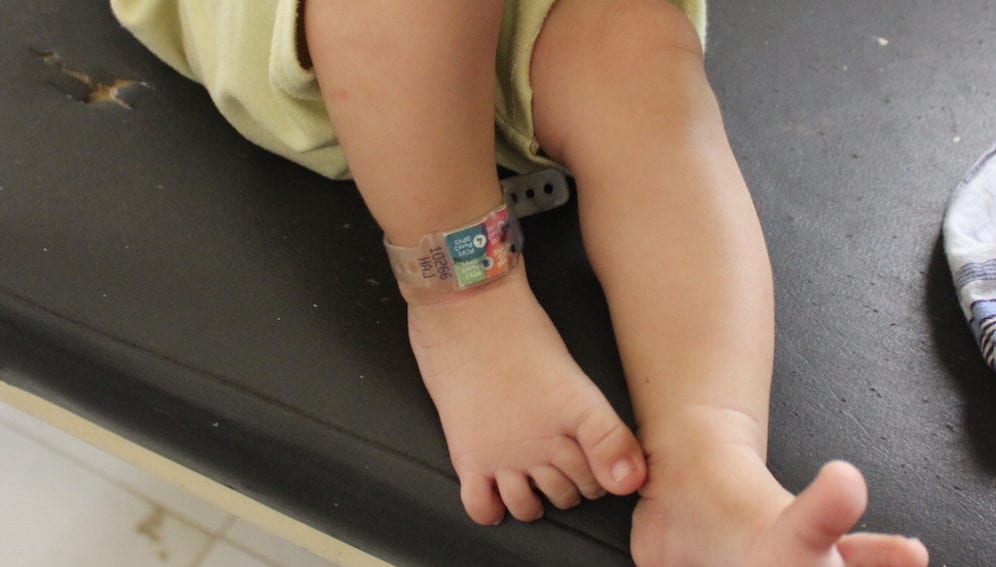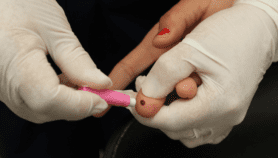Send to a friend
The details you provide on this page will not be used to send unsolicited email, and will not be sold to a 3rd party. See privacy policy.
[KARACHI] Health authorities in Pakistan hope to improve the country’s low childhood immunisation rates with a simple vaccine indicator reminder (VIR) band strapped around a child’s ankle.
Noor Sabah Rakhshani, creator of the plastic, waterproof band, describes it as "a low-cost device based on ink moving on a membrane by capillary action, activated by simple finger pressure.”
Rakshani's project to develop the VIR band through the Trust for Vaccines and Immunisation, a Karachi-based non-profit, was supported by the Bill and Melinda Gates Foundation's Grand Challenges Exploration.
Designed by Timestrip UK Ltd, the band accurately shows when each of the three rounds of vaccines needed over the first 18 weeks of a child’s life are due.
A highly visible red indicator liquid (a food-grade dye) sealed inside the band migrates along a clear window, graphically displaying the three vaccination periods. The device has no electronics or moving mechanical parts.
By February, Rakshani’s team had enrolled 344 children to evaluate the efficacy of the VIR band which costs US$2 apiece.
There are teething problems. District health communications support officer with UNICEF, Jan Mohammad, says: “The concept is excellent, but the accuracy is not. We keep records and have noticed that the timestrip does not always match the date entered on the routine immunisation card.”
However, experts like Zulfiqar Bhutta, founding director of the Centre of Excellence in Women and Child Health, Aga Khan University, are convinced that the band is a breakthrough. "It is innovations like these that will in due course make Pakistan achieve its vaccination goals,” she says.
Pakistan’s vaccination coverage has been a dismal 54 per cent according to the latest government survey conducted in 2012—2013. WHO estimates that up to 60 per cent of children in Pakistan do not complete the immunisation schedule.
The overall low coverage has been attributed to opposition by religious fundamentalists. But, Yasmeen Kazi, who heads paediatrics at the Shaheed Mohtarma Benazir Bhutto Medical College, Lyari, also blames "deliveries at home, resistance to vaccinations due to myths, moving from one locality to another and sheer laziness."
Plans are afoot to introduce the VIR band through a community midwifery programme with support from Gavi, the global vaccine initiative.
Commenting on the VIR band project, Timestrip founder Reuben Isbitsky said in a statement: “This project has allowed us to support the creation of a simple but life-saving product that could help millions of children who suffer through incomplete vaccination regimes.”
This article has been produced by SciDev.Net's South Asia desk.














